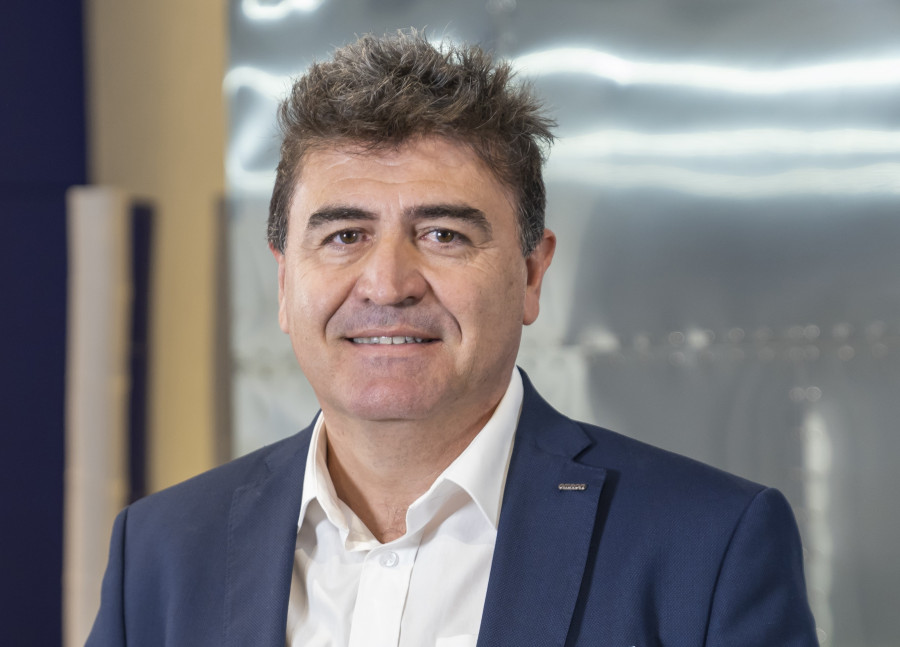"We offer maximum support to the process of seamless integration of IT and OT"

José Antonio Baquedano, Omron e-Mobility & Auto Key Account Manager, explains to AutoRevista several keys to the smart, flexible and sustainable factory, aligned with the transformation of the automotive and mobility industry.
AutoRevista.- How are Spanish car manufacturers and suppliers moving towards smart factories?
José Antonio Baquedano.- There is certainly the will, but often there is still a lack of decisive impetus. Moreover, there is no generally valid definition of what smart factories are. For us, the smart factory is based on the integration of Information Technologies (IT) and Operational Technologies (OT). Much has been done in recent years to bring these two worlds together, and while there are many IT and OT specialists, very few companies have the same expertise in both areas.
What we urgently need are partnerships. At Omron, for example, we have partnered with Dassault Systemes, because of the enormous experience we both have in processes related to the new technologies required by the automotive industry, as well as the portfolio of solutions needed.
AR - European car manufacturers are facing significant competition from China. Is the same true for suppliers of factory equipment?
J.A.B.- The automotive industry is in a serious phase of change, moving away from the classic combustion engine and towards regenerative propulsion technologies, so the competitive pressure is very strong.
Europe has been able to score points with its innovative and efficient technology, but it is based on fossil fuels. Today, other technologies are in demand, such as batteries, or the role of green hydrogen. Electric motors and power electronics also play a key role.
China has strategically positioned itself here from the outset. Today, the production of battery cells is hardly conceivable without the involvement of Chinese manufacturers, and the material component is also largely in Asian hands. Only through the rapid and consistent implementation of intelligent factories will it be possible to catch up in the field of classic battery technology.
AR.- Where is there still potential for improvement in production efficiency?
J.A.B.- I see potential in the area of in-house production of "electric batteries". In addition, industrial automation is becoming more and more important in general, also when it comes to counteracting the profound shortage of skilled workers and sustainability efforts.
Through collaborative robotics (Cobots) and automation, we at Omron have paved the way for humans and machines to work together. We believe these will lead to harmonised automation, and this approach will help companies maximise human capabilities through human-centric automation technologies.
AR.- What is the availability of skilled workers and to what extent can companies contribute with their own training measures?
J.A.B.- Skilled workers with new job profiles play a crucial role in smart factories. This is, of course, a major challenge. But hasn't this always been the case? The smart factory should not only simplify production, make it more flexible, sustainable and optimised, but also support and facilitate the work of each employee.
In a smart factory, employees are supported for greater efficiency in many areas. This applies, for example, to activities that do not add value, such as research and, of course, unnecessary bureaucratic work. Dual vocational training is a good basis for this.
AR: What products is Omron currently developing?
J.A.B.- To provide maximum support for the process of seamless integration of IT and OT, we will soon be launching a completely new generation of our SYSMAC controllers. The experience we have gained in recent years in building smart factories and in close collaboration with our IT partners has been systematically incorporated into the development of this highly innovative control technology.
innovative control technology. In addition, we support with technology and consulting to address the shortage of skilled workers, increase productivity and achieve CO2 neutrality. Our central goal is to create an efficient production in which environmental protection and employee satisfaction are the common focus.
are the common focus.
Lea esta entrevista en castellano

El Clúster de Automoción y Movilidad de Aragón (CAAR) ha llegado a la mitad del año superando los 130 socios, en línea con la tendencia de crecimiento constante que ha mostrado desde su creación.

Ante el nuevo reto de los vehículos inteligentes y conectados de nuevas energías, SAIC Motor ha creado este conjunto de tecnologías originales, fundamentales y comunes, que sirve como base para todas las marcas del grupo, entre las que se encuentra MG.

La tercera generación del modelo se seguirá fabricando en la factoría de Sunderland (Reino Unido).

Toyota Motor Europe (TME) se ha asociado con la Fundación H2 Grand Prix (H2GP) para impulsar la educación STEAM (Ciencia, Tecnología, Ingeniería, Arte y Matemáticas) y promover la tecnología del hidrógeno entre los estudiantes.

Genesis Motor Europa ha anunciado que se adentrará en cuatro nuevos mercados europeos, marcando un nuevo capítulo en su expansión estratégica en la región y complementando su presencia actual en Alemania, Suiza y el Reino Unido.
